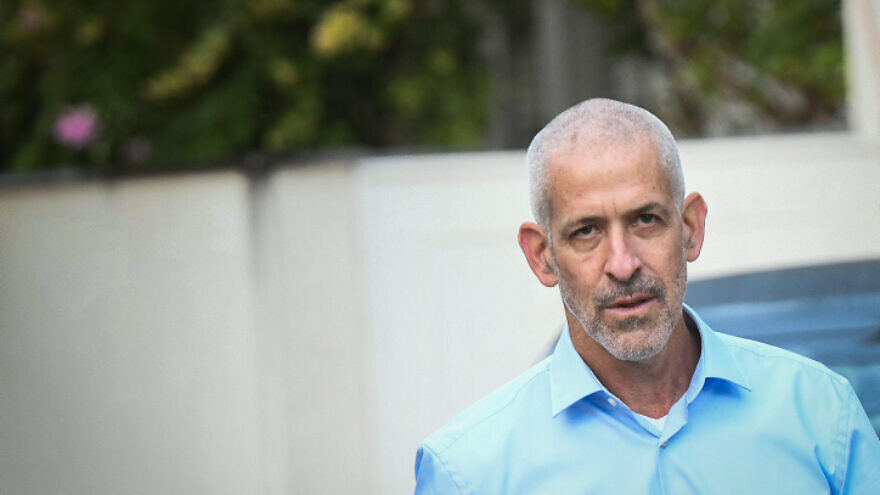Israel Security Agency (Shin Bet) chief Ronen Bar has warned top government officials that the risk of violence over the government’s judicial reform plan is rising, according to Israeli media reports.
Bar spoke with Israeli Prime Minister Benjamin Netanyahu and Justice Minister Yariv Levin, warning them that “the atmosphere is heating up,” according to the reports.
Netanyahu harshly criticized the opposition on Monday night, just before the Knesset passed in first reading one of the key bills in the government’s judicial reform package.
“The opposition has gone off the rails: [MK] Ram Ben-Barak shamefully and scandalously compared the Israeli government to the Nazis; protest leaders tried to confine coalition members in their homes; and members of the opposition dishonored the Israeli flag in the Knesset plenum,” tweeted Netanyahu.
After the bills were approved by the plenum, Netanyahu wrote: “Big day and big night!”
The first bill approved by the Knesset amends Basic Law: The Judiciary so that the Supreme Court can’t invalidate basic laws, which are considered to have quasi-constitutional status in Israel. The second bill changes the composition of the Judicial Selection Committee to give elected officials a majority in choosing judges both for the Supreme Court and lower courts.
Throughout the evening, opposition and coalition MKs traded barbs as they mounted the Knesset podium. Some opposition MKs draped themselves in Israeli flags while heckling members of the government.
Lawmaker Ben-Barak, from opposition leader Yair Lapid’s Yesh Atid Party, invoked the rise of the Nazis during the debate.
“This is worse than all the regimes that we don’t want to be like,” said Ben-Barak. “Not the Turks, Hungarians or Poles, and yes, I will say from this podium, Nazi Germany. They rose to power democratically.”
Earlier in the day, protesters harassed several Israeli coalition lawmakers outside their homes in a bid to block them from reaching the Knesset.
Protest organizers declared Monday a “national day of struggle,” and held a large rally outside the Knesset along with marches in several cities.
At last week’s demonstration outside parliament, Lapid slammed the Israeli government as “corrupt” and “extremist.”
“They hear our strength and our commitment. They pretend they don’t hear and that they’re not afraid—but they hear and are afraid…. They’re trembling as rulers have always trembled when they discovered that there were people facing them who were not ready to give up.
“We will fight in the streets, we’ll fight until we win,” said Lapid.
The same day, Tel Aviv Mayor Ron Huldai said, “This is the history of the world. Countries become dictatorships through the use of democratic tools…. Countries do not become democratic again, except with bloodshed.”
Former Israeli Prime Minister Ehud Olmert called for the protest movement against the government to move to the next stage, one fueled by violent confrontation.
On Sunday, Netanyahu said that opposition rhetoric against judicial reform has been “frankly reckless and dangerous, including calls for bloodshed in the streets and calls for civil war.” This has encouraged Israel’s enemies such as Hezbollah to believe Israel is on the verge of collapse.
“I’m going to disappoint Israel’s enemies. If you’re waiting for a civil war, it ain’t gonna happen…. There will be no bloodshed, I hope—none at all. Yes, we have heated debates in Israel. We’ve always had. Yes, Israel is a rambunctious democracy. It’s always been one. But we are one people with one destiny with one country with one faith,” said Netanyahu.
Justice Minister Yariv Levin has called on leaders of the opposition to meet at the President’s Residence in Jerusalem to discuss the judicial reform program.
Lapid rejected the overture.


























